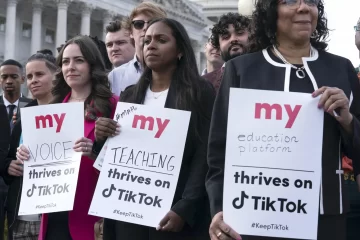Conventional Understanding of Political Risk
Political risk is conventionally used as a framework in investment decisions regarding large foreign direct investment projects or the acquisition of risky sovereign debt. But as domestic markets have become more connected, political events have the increasing potential to produce intense second and third-order effects with global consequences.
In the past, it was rarely necessary to incorporate significant political risk calculus in investment decisions in developed economies. But President Trump has made political risk an important consideration for many multinational companies. Through a prolonged, pernicious trade war with China, the renegotiation of NAFTA, and the unprecedented near attempt to interfere in Federal Reserve decision making, the current administration’s whims have produced rife uncertainty which obscures and complicates multinational firms’ strategic decisions.
The Trump Administration’s Role
In continuity with the establishment of Bretton Woods institutions, the United States in 1994 spearheaded the formation of the World Trade Organization (WTO) in order to strengthen and coordinate multilateral trade procedures, norms, and agreements. The WTO is, essentially, a vehicle designed to mitigate political risk, providing firms with increased certainty about their investment environments. When the Trump Administration deliberately controverts an institution it helped to establish, the credibility of the US is undermined.
By invoking the dubious justification of national security, the most readily exploitable loophole in WTO rules, the Trump Administration has increased tariffs on a range of goods and industrial inputs, steel, automobiles, solar panels and washing machines at different rates for different countries.
These tariffs have not only harmed domestic consumers’ wallets through direct price increases and retaliatory tariffs on exports imposed by affected countries, but have directly affected the very manufacturing workers who voted for Trump in 2016. Recently, GM laid off 14,000 American workers due to increasing steel input costs. This decision is instructive of the new circumstances in which American companies operate. Protectionism harms rather than helps US multinationals and thus has global implications. The ongoing trade war with China demonstrates this.
China
The ongoing trade war with China is of serious importance to the health of the global economy. $250 billion in punitive tariffs, at a rate of ten percent, have already been levied on Chinese exports. China has responded with $110 billion worth of tariffs on American imports.
The Trump Administration provides two tenable justifications for the imposition of tariffs on Chinese exports: China’s prolonged incursion in US intellectual property and manipulation of its currency, the yuan. These grievances have been long standing and are worth addressing. Yet the transitory benefits of the pressure applied to China’s economy do not justify the costs.
The Sino-American trading relationship is the largest in value and volume and thus the most consequential. Significant disruptions of this relationship alter delicate global supply chains, affecting countries with industries that are sensitive to shocks in the Chinese and American economies. The World Economic Forum anticipates a 0.7 percent reduction in global GDP if total tariff exposure is doubled.
Illustratively, in Zhengzhou, China, the centre of iPhone manufacturing, production levels have been sharply cut in response to falling domestic demand due in part to declining wage growth. It is difficult to attribute the exact impact of the trade war on the Chinese economic slowdown, but the effect is appreciable and acknowledged by the Chinese government itself. In 2018, economy grew 6.6 percent, the lowest rate of growth since 1990.
China is indeed an economic superpower; but its exposure to the United States inextricably ties the health of its firms, and thus the growth in total wages and aggregate household demand, to the whims of the American President. China is the world’s second largest economy. As its pistons fire, so runs the engine of the global economy.

The Bottom Line
When the Trump Administration flexes its protectionist muscles, American corporations, such as Apple and GM, must allocate time and resources to maintain their production costs. President Trump, the self-proclaimed champion of American business, imposes considerable harm not only on consumers but also on the firms who employ American workers.
The prolonged trade war has not only vexed US multinational firms with extensive supply chain and consumer market exposure in China but has immediately and pronouncedly dampened Eurozone growth. Crucially, the damage is independent of the American tariffs already imposed on the EU.
The “New” Political Risk
It is beyond the scope of this article to give sophisticated analysis of international trade flows. But the picture is abundantly clear. When the largest economy in the world, the United States, acts in deliberate opposition to rules and norms it aggressively championed just over twenty years ago, firms around the world grow wary. Investment decisions and business operations are confounded by unnecessary trade barriers which impose consequences that are enormously difficult to measure.
Large scale trade wars redefine the meaning and application of political risk. Though the deadline of 1 March to reach a bilateral agreement was recently extended, the threat of the US raising the tariff rate from 10 percent to 25 percent looms large.
Global economic performance is firmly embedded in political decision making. The United States should champion, rather than disrupt, liberal markets and free exchange. The Trump Administration has done the opposite, imposing an unfavourable economic climate and extending the scope of uncertainty in international markets. Political risk is now that much more important.


